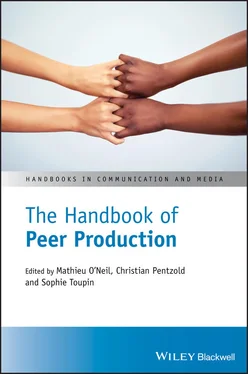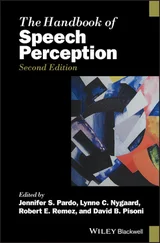Furthermore, positioning the commons as a process of becoming adds critical weight to commoning practices by demonstrating how those activities are capable of bringing about a postcapitalist future. The term “postcapitalism” is generally used to describe a number of different proposals for developing a new economic system to replace capitalism. While there is no unified theory of what postcapitalism is or what it will look like, most thinkers writing about the subject generally agree that the contradictions within capitalism and the recurrent crises of capitalism are unsustainable in the long run. Therefore, they offer proposals for what a postcapitalist future will look like as well as different proposals for how such a system can be achieved. In a sense, these thinkers are revitalizing the tradition of utopian socialism, which offered visions of a future society that was comprised of freely associating individuals living in harmony with one another. Early utopian socialist thinkers, like Henri de Saint‐Simon and Charles Fourier influenced Karl Marx, and Marx’s work is often situated within a combination of three conceptual areas: political economy, German classical critical philosophy, and utopian socialism (Harvey, 2010). While Marx remains somewhat vague in his specific description of society after the abolition of capitalism, he carried on the tradition of utopian socialism in thinking that another world was possible. In Marx’s formulation, such a transition was only possible through the revolutionary struggle of the working class against capital.
More recent accounts of postcapitalism focus on the ways that social relations are beginning to transform in ways that are antithetical to capitalism. For example, one of the earliest uses of the term ‘postcapitalism’ comes from Peter Drucker’s (1994) book, Post‐Capitalist Society . Noting that the transformation toward more information‐ or knowledge‐based economies in the Global North, and particularly the United States, Drucker argued that such a shift fundamentally changes the social, economic, and political dynamics throughout society. As a management consultant and educator, Drucker’s analysis of postcapitalism was not about radically transforming or replacing the capitalist system but recognizing the shifts occurring from within capitalism and how business organizations could adapt their strategies to survive in this new form of capitalism.
Two other recent works have become influential for thinking about postcapitalism. One account comes from the journalist Paul Mason (2015), whose account of postcapitalism does not shy away from a critique of capitalism. Mason argues that the imbalances of power and the increasingly devastating crises at the heart of neoliberal capitalism are ultimately unsustainable. He argues that we need to move beyond capitalism so that it is replaced with an economic system that will be more beneficial and sustainable. To that end, Mason offers five principles for the transition to postcapitalism. The first principle is more of a condition for implementing any project for social change. We need to test all proposals at a small scale then model them many times over before implementing them on a broader scale. Second, ecological sustainability is a necessity for any project in designing the future. Third, the transition to postcapitalism is not simply about economics; it is about human beings, and we cannot privilege economic progress at the expense of social welfare. Fourth, problems must be attacked from all angles, which takes advantage of networked hierarchies. In short, the benefit of networks is that meaningful action can occur at many different levels and it does not need to be centralized. Finally, we should maximize the power of information by learning from the data being generated about social life. However, the apparatus for data collection would be collaborative and de‐centralized rather than under corporate control.
Another influential work about postcapitalism comes from Nick Srnicek and Alex Williams (2016) who provide a series of demands that are necessary for the transition to postcapitalism. First, the authors argue for a fully automated economy, which would free up human beings from the required routines of waged labor. More specifically, they argue for a progressive reduction in work so that necessary labor is reduced as much as possible. Not only would this eliminate some of the social hierarchies between different types of employment, but it would also free up more time for addressing social and community needs. Second, the authors argue for a reduction in the length of the work week with no reduction in pay. Third, the authors argue for a universal basic income that is sufficient for living, given without qualification, and acts as a supplement to the welfare state rather than a replacement. Finally, the authors argue for a diminishment of the work ethic, or the development of a counter‐hegemonic approach to work. Such an approach “would overturn existing ideas about the necessity and desirability of work, and the imposition of suffering as a basis for remuneration” (Srnicek & Williams, 2016, p. 125).
At the heart of these proposals is the recognition that commons‐based movements and the active process of commoning carry something within them that points to another way of living. In a sense, the proposals offered by Mason (2015) and Srnicek and Williams (2016) take for granted the achievements of commons movements without probing into the specific dynamics of how value is created and circulates within communities of commoners. Massimo DeAngelis (2017), however, has offered such an analysis, particularly of the way that value circulates within the commons and commons‐based communities. Figure 3.1below illustrates one attempt to chart how value circulates in the commons through the circuit of commons value. In this figure, an association of people (A) claim collective ownership of their commonwealth (CW), whether the sources of commonwealth are material, immaterial, commodity (C), or non‐commodity (NC). This dual relationship between the association of commoners, as subjects, and their commonwealth, as objects, constitutes the commons (Cs). Through the activity of commoning (cm), the commons are produced and reproduced over time, which ensures their survival.
While this circuit of value differs from capital accumulation circuits, this is not to say that commoners do not interact with capital or the state. Rather, for DeAngelis (2017), circuits of commons value can couple with capital circuits through the commodity form, which is also pictured in the figure. Rather than arguing that these two circuits can or ought to peacefully coexist, DeAngelis simply demonstrates that they do coexist. For example, when commoners must interact with the money form of capital, they do so only as a medium of exchange to gain access to the materials necessary to reproduce the commons and themselves over time. As this relates to the digital commons, free software contributors or users will need access to a computer in order to code the digital commons or access them. In addition, programmers will need to have access to food, water, shelter, and all those things necessary to reproduce their own capacity to code the digital commons over time. These goods may be provided by the welfare state or one’s family but, in the absence of such provision, one would need to intersect with capital circuits to obtain them. However, the extent to which commoners engage with capital circuits is left up to the community and will vary depending on the unique situation of each community.
The goal for any commons‐based movement, however, is how to ensure that the value created within the community is preserved rather than extracted by capital or the state. Bauwens and Niaros (2017) explore this dilemma through an analysis of value within the commons economy. The authors argue that economic theory is experiencing a “value crisis” in light of the emergent practices of commons‐based communities. They argue that whereas value within capitalism is extractive , a shift to a generative value model would enrich the communities and resources directly involved in production. In response to these concerns, open cooperatives and platform cooperatives (Scholz, 2014) have been developed as organizational forms that seek to directly enrich those involved in production. However, the specific tactics used by open cooperatives to ensure that the value created by their contributors stays within the commons may vary. In other words, rather than imposing a “one‐size‐fits‐all” approach to organizing, the commons framework remains flexible, allowing local communities to make choices about how to govern collective resources. The recognition here is that local communities will have a much more sophisticated understanding of their collective resources, including the institutional, political, cultural, and social contexts within which the resource is situated.
Читать дальше


![О Генри - Справочник Гименея [The Handbook of Hymen]](/books/407356/o-genri-spravochnik-gimeneya-the-handbook-of-hymen-thumb.webp)









